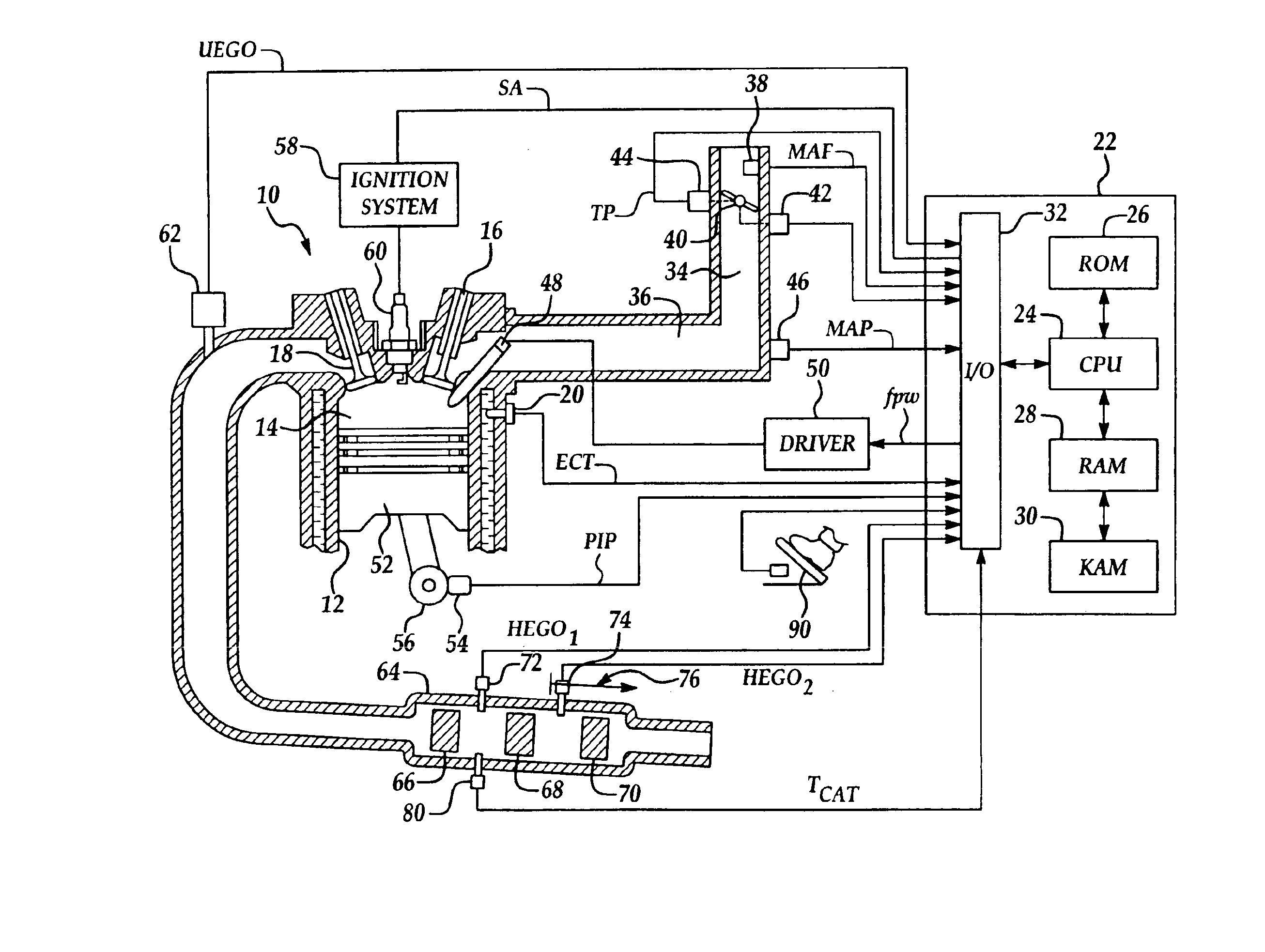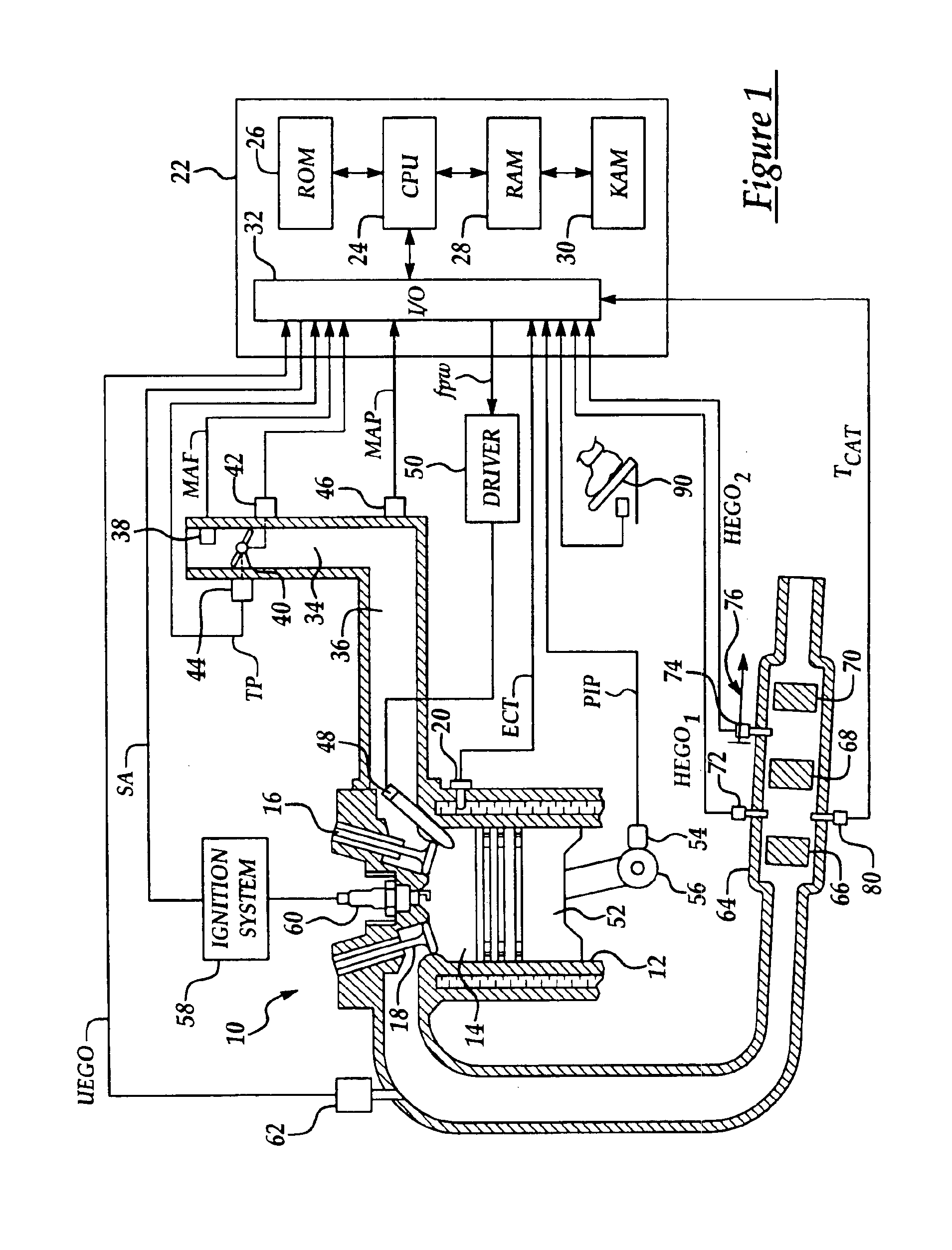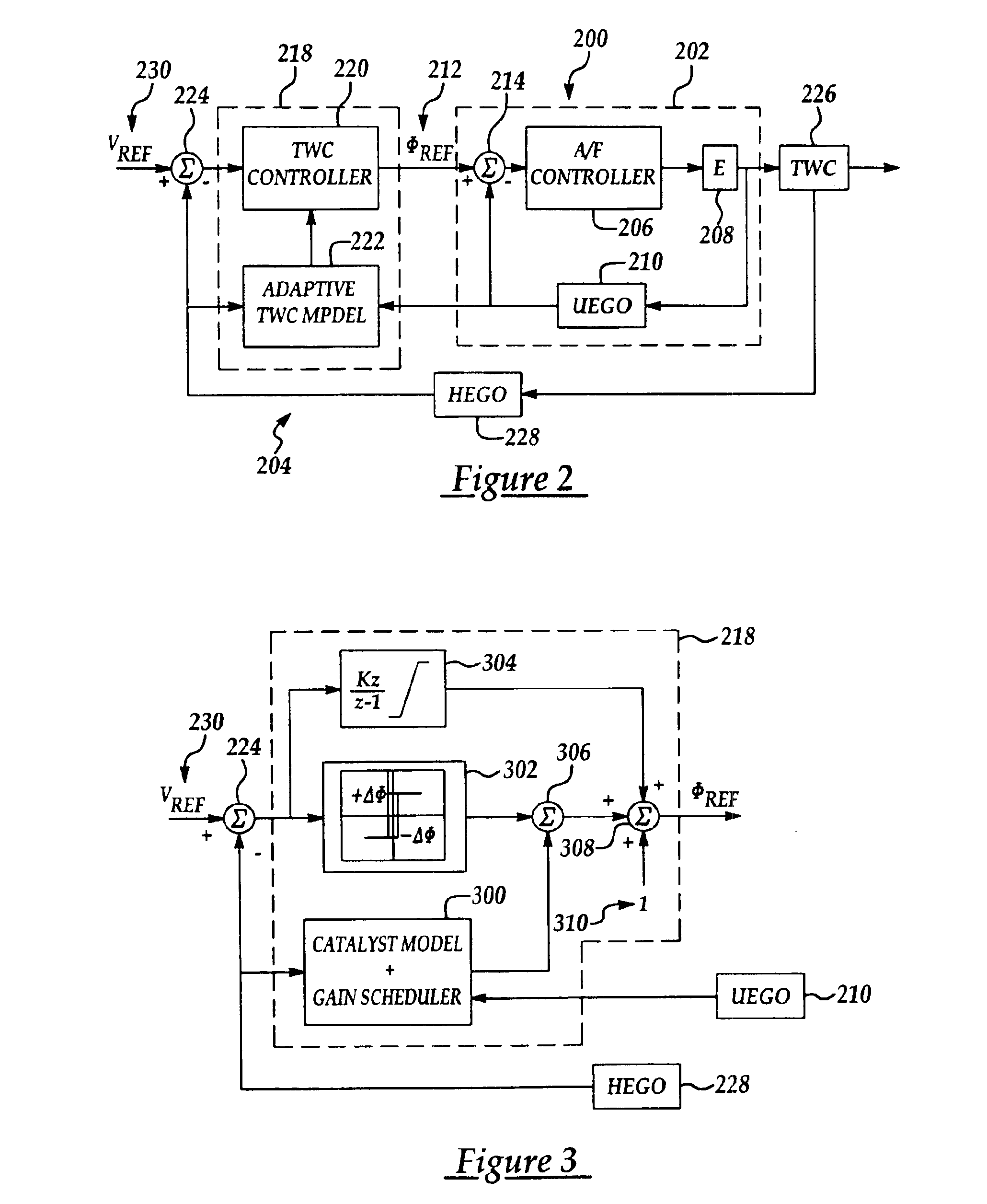Engine control and catalyst monitoring based on estimated catalyst gain
a technology of engine control and catalyst gain, applied in the direction of electrical control, process and machine control, instruments, etc., can solve the problems of complex and difficult control of catalyst conversion efficiency through fuel/air ratio control, and achieve cost and weight savings
- Summary
- Abstract
- Description
- Claims
- Application Information
AI Technical Summary
Benefits of technology
Problems solved by technology
Method used
Image
Examples
Embodiment Construction
)
The present invention relates to a control strategy for controlling and monitoring operation of an internal combustion engine to effectively manage catalyst conversion efficiency under various engine, vehicle, and catalyst operating conditions. As will be appreciated by those of ordinary skill in the art, the various controllers referred to in describing the present invention are preferably implemented by software, code, or instructions executed by a microprocessor based engine, vehicle, or powertrain controller.
Embodiments of the invention use an inner feedback control loop for fuel / air ratio control and an outer feedback control loop that provides a fuel / air ratio reference value to the inner feedback control loop. The outer loop includes an adaptive controller that adapts to the estimated oxygen storage capacity of the catalyst, exerting more control effort while the catalyst exhibits a large degree of oxygen storage, while reducing control effort under higher engine loads or af...
PUM
 Login to View More
Login to View More Abstract
Description
Claims
Application Information
 Login to View More
Login to View More - R&D
- Intellectual Property
- Life Sciences
- Materials
- Tech Scout
- Unparalleled Data Quality
- Higher Quality Content
- 60% Fewer Hallucinations
Browse by: Latest US Patents, China's latest patents, Technical Efficacy Thesaurus, Application Domain, Technology Topic, Popular Technical Reports.
© 2025 PatSnap. All rights reserved.Legal|Privacy policy|Modern Slavery Act Transparency Statement|Sitemap|About US| Contact US: help@patsnap.com



